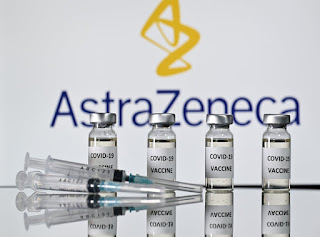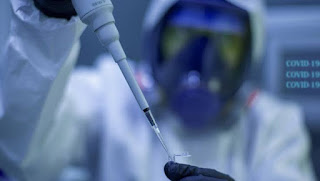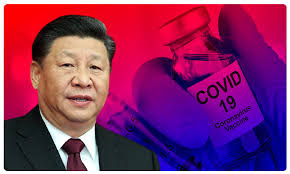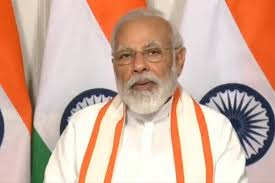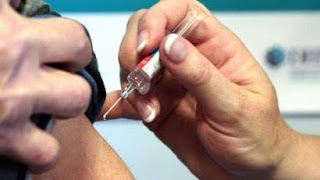Image Source: GoogleWorld News/Covid-19 Vaccine: Moderna Inc’s experimental vaccine is 94.5% effective in preventing COVID-19 based on interim data from a late-stage trial, the company said on Monday, becoming the second U.S. drugmaker to report results that far exceed expectations.
Together with Pfizer Inc’s vaccine, which is also more than 90% effective, and pending more safety data and regulatory review, the United States could have two vaccines authorized for emergency use in December with as many as 60 million doses of vaccine available this year.
The vaccines, both developed with new technology known as messenger RNA (mRNA), represent powerful tools to fight a pandemic that has infected 54 million people worldwide and killed 1.3 million.
Unlike Pfizer’s vaccine, Moderna’s shot can be stored at normal fridge temperatures, which should make it easier to distribute, a critical factor as COVID-19 cases are soaring, hitting new records in the United States and pushing some European countries back into lockdowns.
“We are going to have a vaccine that can stop COVID-19,” Moderna President Stephen Hoge said in a telephone interview.
Moderna’s interim analysis was based on 95 infections among trial participants who received the vaccine or a placebo. Only five infections occurred in volunteers who received the vaccine mRNA-1273, which is administered in two shots 28 days apart.
“The vaccine is really the light at the end of the tunnel,” Dr. Anthony Fauci, the top U.S. infectious diseases expert said. He urged Americans not to let their guard down and to continue washing hands and being vigilant about social distancing.
Even with fast authorization, the vaccines will not come in time for most people celebrating the U.S. Thanksgiving and end-of-year holidays, when families and friends come together - just the types of gatherings public health officials warn against.
Moderna expects to have enough safety data required for U.S. authorization in the next week or so and expects to file for emergency use authorization (EUA) in the coming weeks.
The company’s shares, which have more than quadrupled this year, jumped 8%, while European and U.S. stocks rose. The benchmark S&P 500 rose 1%, while the pan-European STOXX 600 climbed 1.3%. [MKTS/GLOB]
Shares in Pfizer and its partner BioNTech, whose vaccine must be transported at far colder temperatures, fell 4.3% and 16.4% respectively, while Britain’s AstraZeneca, which has yet to release any results from its late-stage vaccine trials, was down 1%.
SEVERE CASES
Moderna’s data provide further validation of the promising but previously unproven mRNA platform, which turns the human body into a vaccine factory by coaxing cells to make virus proteins that the immune system sees as a threat and attacks.
Moderna expects the vaccine to be stable at normal fridge temperatures of 2 to 8 degrees Celsius (36 to 48°F) for 30 days and it can be stored for up to 6 months at -20C.
Pfizer’s vaccine must be shipped and stored at -70C, the sort of temperature typical of an Antarctic winter. It can be stored for up to five days at standard refrigerator temperatures, or for up to 15 days in a thermal shipping box.
The data from Moderna’s trial involving 30,000 volunteers also showed the vaccine prevented cases of severe COVID-19, a question that still remains with the Pfizer vaccine. Of the 95 cases in Moderna’s trial, 11 were severe and all 11 occurred among volunteers who got the placebo.
Moderna, part of the U.S. government’s Operation Warp Speed program, expects to produce about 20 million doses for the United States this year, millions of which the company has already made and is ready to ship if it gets FDA authorization.
“Assuming we get an emergency use authorization, we’ll be ready to ship through Warp Speed almost in hours,” Hoge said. “So it could start being distributed instantly.”
The 95 cases of COVID-19 included several key groups who are at increased risk for severe disease, including 15 cases in adults aged 65 and older and 20 in participants from racially diverse groups.
“We will need much more data and a full report or publication to see if the benefit is consistent across all groups, notably the elderly, but this is definitely encouraging progress, said Stephen Evans, professor of pharmacoepidemiology, London School of Hygiene & Tropical Medicine.
The trials were designed to measure whether the vaccines stop people from getting sick rather than whether they prevent transmission, which remains to be tested.
“It is likely that vaccines that prevent symptomatic disease will reduce the duration and level of infectiousness, and thus reduce transmission, but we don’t yet know if this effect will be large enough to make any meaningful difference to the spread of the virus within communities,” said Eleanor Riley, professor of immunology and infectious disease at the University of Edinburgh.
ROLLING REVIEW
Most side effects were mild to moderate. A significant proportion of volunteers, however, experienced more severe aches and pains after taking the second dose, including about 10% who had fatigue severe enough to interfere with daily activities while another 9% had severe body aches. Most of these complaints were generally short-lived, Moderna said.
“These effects are what we would expect with a vaccine that is working and inducing a good immune response,” said Peter Openshaw, professor of experimental medicine at Imperial College London.
The U.S. government, faced with the world’s highest known number of COVID-19 cases, could have access next year to more than 1 billion doses from Moderna and Pfizer, more than needed for the country’s 330 million residents.
The Trump Administration has mainly relied on the development of vaccines and treatments as its response to the pandemic. Moderna has received nearly $1 billion in research and development funding from the U.S. government and has a $1.5 billion deal for 100 million doses. The government has an option for another 400 million doses.
The company hopes to produce between 500 million and 1 billion doses in 2021, split between its U.S. and international manufacturing sites, depending in part on demand.
Europe’s health regulator said on Monday it had launched a real-time “rolling review” of Moderna’s vaccine, as it has done for vaccines from Pfizer and AstraZeneca. Brussels also said it was in talks with Moderna about securing doses.
Other countries such as China and Russia have already begun vaccinations. Russia licensed its Sputnik-V COVID-19 vaccine for domestic use in August before it started large-scale trials. It said on Nov. 11 that its vaccine was 92% effective based on 20 infections in its large trial.
News Source: Reuters
Also Read|
India’s Serum says produced 40 million doses of AstraZeneca COVID-19 vaccine
Pfizer says COVID-19 vaccine over 90% effective
